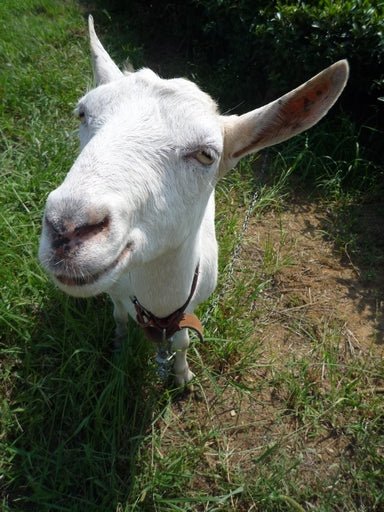Last week, I had the opportunity to talk with the Tarui family of Tarui Tea Farm in Nearai, Hamamatsu, Shizuoka prefecture. They are a family operated organic tea farm and factory specializing in non-standard cultivars. Have you ever tried their teas? Today, I wanted to share parts of our talk so that you may be able to learn more about them, too!
Entering the Tea World and Organic Farming
On the Yunomi Site, it states that your family is currently a 2nd generation tea farmer. What made your family commit to this path?
Well, Nearai/Hamamatsu is an area that went through “Kaikon” (開墾;a process of cutting down forests to make space for farmland) after the war. When our predecessors (i.e., the generation before us) were going through this process, there were no machines like the ones we have today so they accomplished this manually, which took several years for it to become agronomically productive. Because they went through such an arduous process, we felt it would be sacrilegious to sell the land our predecessors worked so hard to obtain. It felt right to continue the farm work that the generation before us had planted the seeds to.
Why did your family choose to go with organic farming?
Well, when our predecessors started tea farming, it was the post-war period. Back in the very beginning, there weren’t any chemical fertilizers or pesticides. Nothing. But as Japan started to develop during the post-war period, it was actually the Japanese government that started to recommend the use of pesticides and inorganic fertilizers in order to grow more crops and recover from the ravages of the war. Around this time when pesticides and inorganic fertilizers were becoming recommended and utilized, our predecessors started to use pesticides with caution but also questioning whether this was really the right way forward. It is during this time they became acquainted with a doctor in Tokyo. This doctor really believed in Ishokudougen (医食同源), which is basically the idea that you are what you eat. And so, if people are eating pesticide grown crops, it will have detrimental consequences on their health. This doctor was therefore greatly opposed to the Japanese government’s incentivization to use pesticides. He felt that if Japanese farmers continue to use pesticides, it will not be good for the land and the people of Japan. So, he called onto farmers who shared his ways of thinking and started a movement in which these farmers continued to grow crops without using pesticides. From that point on, we have stuck to organic farming.
Besides your family’s commitment to organic tea farming, what would you say is the specialty of your tea farm?
We really take special care in growing different varieties. In Japan, the dominant cultivar is Yabukita, which makes up about 75% of the tea plants in our country. But on our tea farm, we have Yabukita, but also the Yamakai cultivar which is in our Shurei tea. Others include Shizu#7132, Karabeni, and Ninzatsu. Our Kiriyama Mushin tea (with the Shizu#7132 cultivar) is also very different from our Yabukita or Shurei teas. It is a top quality tea that would appeal to Japanese tea lovers.
In addition to the different cultivars that we grow, we also take pride in our aracha (raw leaf; see Yunomi's List of Japanese teas and terminology #1) factory. The aracha factory is where the tea leaves are steamed and rolled into aracha, a very important step in Japanese tea processing. At our factory, we use a type called kounetsu-yudo-shiki (高熱誘導式; high heat induction type), which is actually a rare type these days. That being said, we are perhaps one of the only, select few tea farms who use this method and machine companies do not make this type of tea machine anymore. A uniqueness of the processed tea with this type of high heat induction method is that when the tea is steeped, you can enjoy multiple steeps without really losing the essence of the tea.
About the Role of Goats for Growing Tea and Future Cropping System
The first tea I tried from your tea farm was your “Shurei” (秀麗;Elegant Beauty) tea with the Yamakai cultivar. While I was of course pleased with respect to the flavor profile of this particular sencha, a sketch of a goat on the back of the tea bag also caught my eye... Is it true that you own a goat? If so, what is their name and what role does your goat play in tea farming?
Yes. We just own one goat, her name is Haiji. She helps us in weeding the tea fields. Growing tea plants comes with lots of weeds… To control this, tea farmers usually use pesticides. Since we are organic however, we do not use any pesticides. Instead, we hand-pick the weeds ourselves and Haiji also helps in the process. We actually have a video of her helping out with the weeds. I would be happy to send it to you later.
That would be wonderful, thank you. And do you feel that goats such as Haiji-san play an essential role in the future of organic tea farming?
I would say so. They play an important role because the food they eat (i.e., weeds), they will return to the earth again, which takes form as fertilizer for the soil on the tea farm. I really think it’s a wonderful cycle of regeneration.
Here, you can check out the video Tarui-san sent to me, of their goat Haiji helping out on the tea fields:
Since you are organic, what other cropping systems do you rely on and employ on your tea fields?
At this time of year, we spread fallen leaves in between the tea bushes. We also make use of compost (which includes cow manure) as well as rice husks.
Climate Change and Tea Farming
Climate change is recently affecting not just tea farming but various aspects of our day-to-day lives. Have you noticed any influences of climate change on your tea farm, or on people’s lives in your village (e.g., temperature, precipitation, fog, flooding, drought)?
Well, the two main cultivars we have on our tea farm are Yabukita and Shizu#7132. The common pattern was for the Yabukita tea leaves to be ready for harvest before Shizu#7132. However, in the past few years, they have switched. Now, we harvest Shizu#7132 prior to Yabukita. With respect to noticeable changes here, now that you ask, previously in the past around March, we had been observing late frost. We used to take countermeasures for it since frost can damage the tea bushes; especially in March before the ichibancha harvest (i.e., first tea harvest). We would employ bousou, which are basically fans placed over the tea fields to blow away the frost. However, recently, because of global warming, we have stopped observing late frost...
I see, interesting. With respect to not having to deal with late frost, it seems that is not a negative influence at least in the short-term. In the long-term though, how do you plan to continue tea farming with the consequences of climate change?
Hmm… well, perhaps, we try tea cultivars from India. The reason I mention this is because due to climate change, the leaves of the tea bushes are actually becoming larger in comparison to the past. So, we feel that we could try planting tea cultivars that are better suited for warmer climate.
Would you say less impact of climate change is observed since you are in Shizuoka prefecture? As opposed to some of the other major tea producing regions in Kyushu, the Southern prefectures of Japan?
Oh, Hamamatsu (in Shizuoka Prefecture) is actually quite warm! Because of this, we started to grow passion fruit on the side. This year, we actually grew more passion fruit than we were planning. So, with our second tea harvest, we usually make Japanese black tea. This year, since there were so many passion fruits we decided to try mixing the passion fruit (juice, seeds) in the tea. We think it turned out pretty good. It’s been nice to have something tropical…
Passion fruit in Japanese black tea! I don’t think we have any teas with passion fruit at Yunomi right now.
Actually, a while back, Chun-san (Ian Chun) asked us to make something fruity mixed in with Japanese sencha. We would like to mix something with our senchas one day, but it can be challenging to find something that would go well with our senchas. We will keep exploring!
Into the Future of Tarui Teas!
At Tarui farms, how do you see yourselves evolving into the future? Do you have a specific vision in mind?
Well, our daughter here will be the third generation tea farmer. Currently, she is helping out on our tea farm. Even though there are only five of us in total (Tarui-san husband, wife, daughter, and two external helpers), I would say we are pretty efficient thanks to the mechanization of tea harvesting. From about 30 years ago, we have been utilizing the tea harvest machine called “Jyouyougata (乗用型; Simply means “Riding Type” in Japanese)” - it’s the machine where you can ride and harvest at the same time. And it is very fast… yes, quite fast! If we continue in this way, I believe we can efficiently minimize human labor.
It sounds like you have a nice balance of human labor like hand-picking the weeds with your goat Haiji-san and also relying on the efficiency of machines. And you use the Riding Type tea harvesting machines. So it must be rather flat in Hamamatsu?
Yes, even on Kiriyama. Kiriyama is a mountain where some of our tea fields are located, including the tea bushes for our Shurei Tea. However, since the tea fields there were developed through a process of kaikon, we can actually use this type of machine to tea harvest there as well.


Thank you for your time today and for sharing about your tea farm and family. It was very insightful for me and I look forward to sharing it with the Yunomi community and with the wider Japanese tea communities. I now also want to try more of the teas at Tarui Farms, especially the cultivars which I have not tried before...
Arigatougozaimasu! (有難うございます!Thank you!)
Tarui-san's Tea Recommendations (check out more on their collection page!):
- Shurei Elegant Beauty: Coming from the Yamakai cultivar, this is a flavorful sencha to start your exploration of the teas from Tarui Tea Farms. If you are like me, you will appreciate the illustration of their goat, Haiji-san on the back of the tea bag!
- Tarui-san's Organic Aracha: Tarui Tea Farm's organic flush green tea, deep-steamed, but left unrefined.
- Kiriyama Mushin: This sencha comes from Tarui Tea Farm's Shizu#7132 cultivar, a rare cultivar that is only really found in Shizuoka prefecture. Often characterized by a cherry blossom aroma, this tea has a strong personality.
Feature image credit: Goat Haiji; photo taken by Tarui Tea Farms


